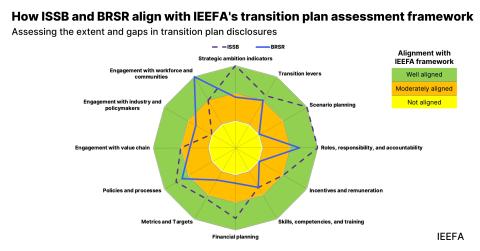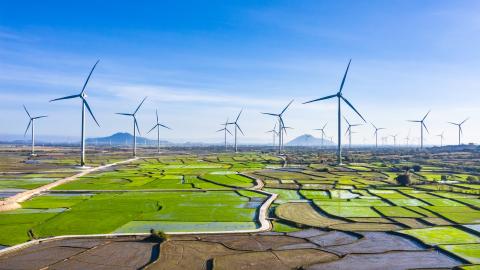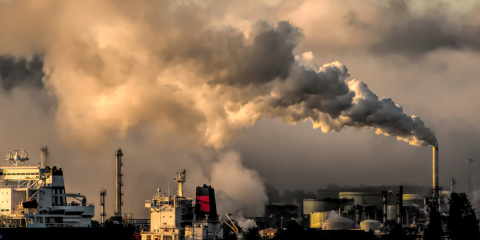Key Findings
The proposed Formosa, Louisiana petrochemical complex project is financially unviable.
IEEFA finds significant financial, market, regulatory and political risks for the proposed multibillion-dollar 'Sunshine Project' to be situated in Louisiana's 'Cancer Alley.'
The Formosa petrochemical project has been criticized for perpetuating environmental racism in Louisiana.
Executive Summary
Financial, market, regulatory and political risks have combined to make Formosa Plastics’ proposed petrochemical Sunshine Project unviable. The project, planned for St. James Parish, La., would begin operations at a time of market oversupply, low petrochemical prices, strong competition for market share, restrictive trade policies, environmental regulatory challenges, judicial findings of historic racial discrimination, popular opposition, rising construction costs and a weakened bond rating. Warnings of cancellations and delays of similar projects are occurring globally and signs of financial distress in the Louisiana petrochemical market are apparent.
Formosa Plastics is a financially strong company with a solid dividend history. IEEFA’s projected balance sheet of the Louisiana project—low revenues, tight profit margins and poor returns—provides a warning sign that a final investment decision to move forward would cause Formosa to make the wrong products, at the wrong time, at the wrong price, in the wrong place and with the wrong financial calculus.
- From 2010 to 2016, global market conditions favored cracker investments, but the rush to build new cracker capacity created a global oversupply that has driven prices down. Prices for petrochemical products relevant to Formosa’s project are rising but remain much lower today than during Formosa’s planning phase and are unlikely to rise sufficiently by the time of commercial operation to produce healthy profit margins. Price competition can be expected to intensify and profitability can be expected to decrease as new capacity comes online through 2025. Standard & Poor’s, Moody’s and others cite weaknesses in the market. Shell’s recent closure of its Louisiana refinery and Sasol’s distressed sale of its new Lake Charles facility highlight local problems. IEEFA estimates that annual revenues will be in the $2.5 billion range, 20 percent lower than predicted in a consultant study Formosa used in 2018.
- The virgin plastics market is unlikely to grow at a fast enough pace to absorb the oversupply. In a post-pandemic world, economic growth—which has historically driven plastics consumption—may not be sufficiently robust to absorb the oversupply. Also, recycling initiatives and bans on single-use plastic are likely to reduce traditional growth estimates for virgin plastics. The combined impact of these factors will slow the rate of growth in the virgin plastics market as new cracker plants come online. Market imbalance is likely to persist, with low prices and diminished profitability.
- The export outlook from the United States is uncertain. China, which imports well over half of the ethylene, polyethylene and polypropylene on the global market, is adding substantial new cracker capacity within its borders. As China adds capacity, its import growth rate will decline and the demand for petrochemicals, particularly those shipped halfway around the world, will decrease.
- Rising construction costs will diminish the Formosa project’s profitability and have contributed to a recent credit downgrade. The Taiwan Rating Service (TRS) recently estimated the cost of the project to be $12 billion, a 24 percent increase from Formosa’s original 2018 estimate of $9.7 billion. TRS downgraded Formosa from AA to AA-, based in part on the project’s impact on Formosa’s cash flow. Rising commodity prices for iron ore, steel and copper may push construction costs higher.
- The Formosa project faces regulatory risks. Formosa management has acknowledged that it cannot build a new petrochemical plant in Taiwan due to government concerns over environmental impacts. The company has stated that Texas and Louisiana government officials are more cooperative. Yet in Louisiana, Formosa’s local, state and federal permits face legal challenges from the community and public interest organizations. The U.S. Army Corps of Engineers, for example, is re-evaluating the project’s water permit based on new information on alternatives. The Corps also faces a legal challenge for its failure to produce an environmental impact statement on the project. The extent to which these proceedings could derail the project or add to its costs is not yet known.
- Formosa decided to locate the plant in Louisiana’s St. James Parish, where 91 percent of the population in the immediate district is African-American. The area is already so saturated with toxic and carcinogenic pollution from decades of industrial activity that it is widely known as Cancer Alley. President Joe Biden, in remarks on signing executive orders on environmental policy, cited Cancer Alley as one of the “hard-hit areas” of concern with regard to “the disproportionate health and environmental and economic impacts on communities of color." A Louisiana district court judge has expressed concern that the state’s environmental agency should have analyzed concerns about environmental racism regarding the project.
- The project faces long-term political risks. Pollution and environmental racism are likely to remain persistent issues for Formosa regardless of the outcome of permit challenges. The project site contains old graves, likely those of slaves who once worked the plantation, adding a deeper layer of meaning to the community’s connection to the land. A protracted dispute that is rooted in historical patterns of racial injustice would be polarizing. This poses a challenge for the United States under a new administration as it sorts out its relationship with Taiwan going forward.
Formosa Plastics has stated that it will not make a final investment decision on the project until a coronavirus cure is found or a vaccine is distributed. Formosa should use the delay to reassess this ill-advised project, which should be abandoned given its weakened fundamentals.
One-page "explainer": Formosa Plastics' Louisiana petrochemical project is financially unviable
Please view full report PDF for references and sources.
















